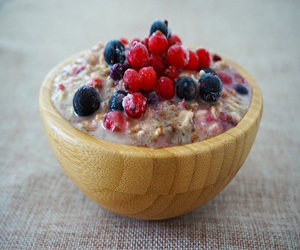


Unprocessed Foods And Their Vital Role In Health

In an era where processed and convenience foods dominate our diets, the resurgence of interest in unprocessed foods signifies a critical shift towards healthier eating habits. Unprocessed foods, often referred to as whole foods, are foods that have not undergone extensive alterations in the form of additives, preservatives, or other artificial enhancements. Choosing to incorporate unprocessed foods into your diet can have profound positive effects on your health and well-being.
What Are Unprocessed Foods? Unprocessed foods are essentially as close to their natural state as possible. These foods include fruits, vegetables, whole grains, nuts, seeds, lean proteins, and dairy products in their purest forms. They are free from artificial flavorings, colors, preservatives, and excessive salt or sugar content. Unprocessed foods provide an abundance of essential nutrients and have several key advantages:
Rich In Nutrients: Unprocessed foods are loaded with vital nutrients. Fresh fruits and vegetables, for instance, provide an array of vitamins, minerals, fiber, and antioxidants that are essential for overall health. These nutrients are not only abundant but also easily absorbed by the body.
Low In Harmful Additives: One of the major drawbacks of processed foods is the presence of artificial additives, including trans fats, high-fructose corn syrup, and excessive sodium. Unprocessed foods are devoid of these harmful additives, reducing the risk of health issues such as obesity, cardiovascular diseases, and high blood pressure.
Balanced Macronutrients: Whole foods contain a natural balance of macronutrients - carbohydrates, proteins, and fats - without an excessive amount of any one component. This balance promotes steady energy levels and helps regulate blood sugar, making unprocessed foods an ideal choice for those concerned about diabetes or weight management.
Digestive Health: Fiber, found abundantly in unprocessed foods like whole grains, legumes, and vegetables, is essential for maintaining a healthy digestive system. It aids in regular bowel movements, prevents constipation, and supports gut health.
Weight Management: Unprocessed foods can play a significant role in weight management. They tend to be lower in calorie density, meaning you can consume larger portions with fewer calories. Additionally, they are often more filling due to their high fiber content, reducing the likelihood of overeating.
Improved Overall Well-Being: The consumption of unprocessed foods is not just about physical health; it also impacts mental well-being. A diet rich in whole foods has been associated with better cognitive function, improved mood, and reduced risk of depression and anxiety.
How To Incorporate Unprocessed Foods: Incorporating unprocessed foods into your diet can be a gradual process. Start by replacing processed snacks with fresh fruit, and opt for whole grains like brown rice or quinoa instead of refined grains. Experiment with homemade salads and try to cook more meals from scratch using unprocessed ingredients.
Unprocessed foods are a cornerstone of a healthy diet and lifestyle. Choosing to prioritize whole foods can lead to numerous benefits, including enhanced nutrition, lower exposure to harmful additives, and overall improved well-being. The movement towards unprocessed foods represents a return to the roots of natural and healthy eating, offering a brighter and more healthful future for those who embrace this nutritious path.
A Look At The Evolution And Impact
 Perceived Health Benefits: Some people believe that eliminating gluten from their diet can lead to improved digestion, weight loss, and increased energy. However, the scientific consensus on these claims remains inconclusive.
Perceived Health Benefits: Some people believe that eliminating gluten from their diet can lead to improved digestion, weight loss, and increased energy. However, the scientific consensus on these claims remains inconclusive.
Celebrities And Influencers: High-profile celebrities and social media influencers have helped popularize gluten-free diets by sharing their personal experiences and endorsing gluten-free products.
Growing Gluten-Free Market: The food industry has recognized the demand for gluten-free products, resulting in an expansion of gluten-free options and a significant increase in gluten-free product availability.
The Gluten-Free Food Industry
The gluten-free trend has not only influenced consumer behavior but has also significantly impacted the food industry. Gluten-free product sales have skyrocketed, leading to an influx of gluten-free alternatives in various categories, from bread and pasta to snacks and baked goods. This trend has also led to an increased demand for gluten-free labeling and certification, promoting transparency for consumers.


 One of the most compelling reasons to incorporate meatless options into your diet is the potential for improved health. These options are often lower in saturated fats and cholesterol, making them heart-healthy choices. They are also typically rich in fiber, vitamins, and antioxidants, which can reduce the risk of chronic diseases, aid in weight management, and enhance overall well-being.
One of the most compelling reasons to incorporate meatless options into your diet is the potential for improved health. These options are often lower in saturated fats and cholesterol, making them heart-healthy choices. They are also typically rich in fiber, vitamins, and antioxidants, which can reduce the risk of chronic diseases, aid in weight management, and enhance overall well-being.
Environmental Sustainability
The impact of traditional meat production on the environment is substantial. From deforestation to greenhouse gas emissions, the meat industry has raised concerns about its contribution to climate change. Opting for meatless options significantly reduces your carbon footprint, conserves water resources, and helps protect natural habitats. By reducing the demand for animal agriculture, we can work toward a more sustainable and eco-friendly future.
Ethical Considerations
For many, choosing meatless options aligns with ethical values. Concerns about animal welfare and cruelty in the meat industry have led to the rise of vegetarian and vegan lifestyles. By embracing meatless choices, individuals can make a stand against practices that raise moral and ethical questions, supporting more humane and compassionate treatment of animals.






Culinary Treasures That Bind Generations

At the heart of beloved recipes lies the concept of familiarity and nostalgia. These are the dishes that have been prepared for generations, and their flavors hold a special place in the hearts of those who have savored them. From grandma's secret apple pie to the famous spaghetti sauce that's a closely guarded family tradition, these recipes bring a sense of comfort and warmth with every bite.
Beloved recipes often represent more than just culinary expertise; they are a reflection of cultural heritage. Passed down from ancestors who immigrated to new lands, these recipes carry with them the essence of a culture, preserving traditions, flavors, and culinary techniques that have been cherished for centuries. Whether it's the rich spices of Indian curry, the simplicity of Italian pasta, or the heartiness of Southern barbecue, beloved recipes offer a window into the world's diverse and vibrant cuisines.
A Taste Of Nostalgia And Culinary Delight

The appeal of classic comfort food extends beyond its sentimental value. These dishes are designed to satisfy not only our physical hunger but also our emotional cravings. Take, for example, a steaming bowl of chicken noodle soup. Its rich, savory broth and tender chunks of chicken soothe the soul and provide a sense of well-being. A slice of warm apple pie with a scoop of vanilla ice cream can transport us to a place of pure joy and indulgence. Whether it's the crispy, golden exterior of fried chicken or the creamy, cheesy layers of lasagna, classic comfort food speaks to our hearts as much as it does to our taste buds.
Classic comfort food varies from region to region and culture to culture. In the American South, it might be a plate of buttery, flaky biscuits and sausage gravy. In Italy, it could be a hearty bowl of spaghetti carbonara.